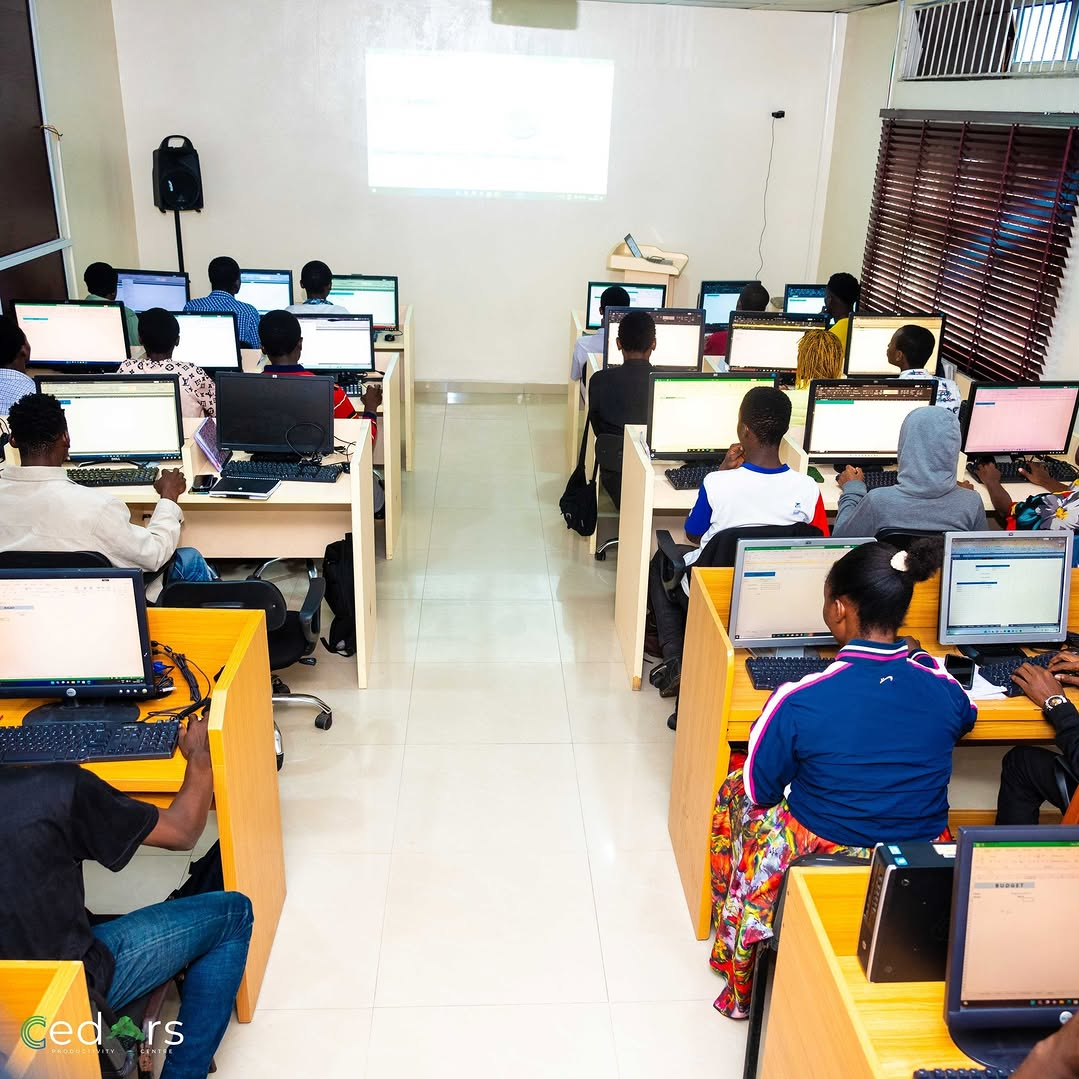Tolu Adeoye’s eyes flitted across the two computer screens on her makeshift desk as she tinkered with a logo design on one while proofreading a lifestyle article on the other. Amidst this, her phone pinged endlessly with notifications from Fiverr, Upwork, and WhatsApp. For Tolu, 27, this was a lifeline to navigate a cost-of-living crisis that had only worsened in recent months.
But this remote style of working wasn’t without its challenges. Without health insurance or a stable income, Tolu worked around the clock, struggling to meet deadlines. Yet she is not alone. In Nigeria, tens of thousands of young people are navigating similar waters in an uncertain world.
A New Economy, A New Problem
The gig economy in Nigeria surged during the COVID-19 pandemic, with lockdowns forcing businesses to embrace remote work. To young professionals like Tolu, freelancing was a hedge against Nigeria’s persistent unemployment crisis. However, the lack of regulations in this space left many gig workers vulnerable.
Enter Paradigm Initiative (PIN). Founded in 2007 by Gbenga Sesan, an advocate for digital inclusion, PIN was created to bridge the digital divide in Africa. Initially set up to equip underserved youth with technology skills, the NGO soon expanded its mandate to include advocacy for digital rights and the empowerment of gig workers.
“Freelancers in Nigeria create a lot of value, yet they lack the support structures that conventionally employed workers take for granted,” Sesan explained. PIN’s mission is to equip Nigerians with the tools, skills, and knowledge they need to not only survive but thrive in the gig economy.
Behind PIN’s success are committed team members like Adaora Ayoade, a program manager for PIN’s Digital Inclusion initiative. An ex-software developer, Ayoade joined after observing the struggles freelancers faced in the technology space. “Freelancing is more than just a job; for so many, it’s a second chance at life. But we need to make it sustainable,” she said.
Another key player is Chijioke Ugwu, who leads the Digital Rights Advocacy team. Ugwu’s mission is to ensure gig workers have access to fair treatment and legal protections.
“We’re not just teaching people how to navigate the gig economy; we’re fighting for policies that recognise their contributions and protect their rights,” he said.
Tolu’s journey into the gig economy began out of desperation. Three years ago, she was a marketing executive at a Lagos-based firm when the COVID-19 pandemic hit. Within weeks, the company downsized, and Tolu found herself unemployed.
Pressing debts spurred Tolu to rediscover her latent graphic design and content writing skills. She joined several freelancing platforms and landed her first project—a $25 logo design for a small business in Ghana. “That moment felt like a fresh start,” Tolu recalled.
As her portfolio grew, so did her client list. But the relentless workload took a toll. With no fixed schedule, Tolu often worked late into the night, skipping meals and shunning friends.
“The freedom I sought came with the price of working 24/7,” she admitted.
Her breaking point came during a family dinner when her younger brother asked why she always seemed so tired.
“It hit me that I was burning out. I had traded one kind of stress for another,” Tolu said. Desperate for balance, she began researching ways to manage her workload. That’s when she discovered Paradigm Initiative’s digital skills workshop.
The workshop in Lagos marked a turning point for Tolu. In just one week, she learnt how to set boundaries with clients, negotiate better rates and explore diverse platforms for financial stability.
But the biggest lesson came from the sense of community. Tolu met other gig workers who shared their experiences, struggles and tips. She also found mentors who offered guidance and support.
“For the first time, I felt like I wasn’t alone in this,” Tolu said.
PIN’s support didn’t stop at workshops. Through its Digital Rights Academy, Tolu learnt about her legal rights as a freelancer. Empowered by this knowledge, she began advocating for better treatment of gig workers and mentoring newcomers.
A Far-reaching impact
Since its inception, the Paradigm Initiative has trained over 10,000 young Africans in digital skills, many of whom have built successful careers in the gig economy.
One flagship program, Techtiary, equips tertiary students with relevant skills to prepare them for the future of work. Another, the LIFE program, targets underserved communities with training in life skills, ICT, financial readiness, and entrepreneurship to ensure no one is left behind.
PIN is also a leading voice in advocacy, lobbying for policies that recognise gig workers as legitimate contributors to the economy. These efforts include pushing for health insurance and pension schemes for freelancers—a first in Nigeria.
Life has improved significantly for Tolu. With PIN’s guidance, she now earns double what she did at her corporate job while working fewer hours. She has also started a blog to share tips and resources for freelancers.
“Paradigm Initiative didn’t just teach me how to survive the gig economy; they taught me how to thrive,” she said.
By addressing the challenges of the gig economy, they are paving the way for a more inclusive and sustainable future of work in Nigeria.
“The gig economy gave me a second chance, and I want to pay it forward,” Tolu told Prime Progress, hinting at her plans to start a digital agency to mentor other gig workers.
PIN’s work demonstrates that, while the challenges of this new economy are significant, they are not insurmountable. With the right tools, support and advocacy, gig workers in Nigeria and across Africa can achieve more than mere survival.
For Tolu and thousands like her, the gig economy represents more than just work—it’s a lifeline and a community. And with Paradigm Initiative leading the charge, it’s also a source of hope for a brighter, more equitable future.
Amidst the cost-of-living crisis exacerbated by the pandemic, Tolu Adeoye, a 27-year-old Nigerian, turned to the gig economy as a lifeline. Like many young Nigerians, she faced the challenges of remote work without benefits or stable income, resulting in burnout. Tolu's journey into freelance work began out of necessity due to unemployment from the COVID-19 pandemic. The lack of regulation in the gig sector left many vulnerable, sparking the need for organizations like Paradigm Initiative (PIN), which focuses on empowering gig workers with digital skills and advocating for their rights.
PIN, founded by Gbenga Sesan, equips young Africans with technology skills and advocates for digital rights. The organization has trained over 10,000 individuals, offering workshops that provide community support, legal rights education, and business skill enhancement, allowing workers to thrive rather than just survive. Tolu experienced transformative growth through PIN's workshops, where she learned essential skills, earned better income, and found a support system.
PIN's advocacy efforts aim to secure health insurance and pension schemes for freelancers, elevating their status as legitimate economic contributors. For Tolu and others, the gig economy is not only a means of survival but a community fostering hope for a sustainable future. PIN’s initiatives highlight that with proper support and advocacy, the challenges of the gig economy can be overcome, creating equitable opportunities for young Africans.






